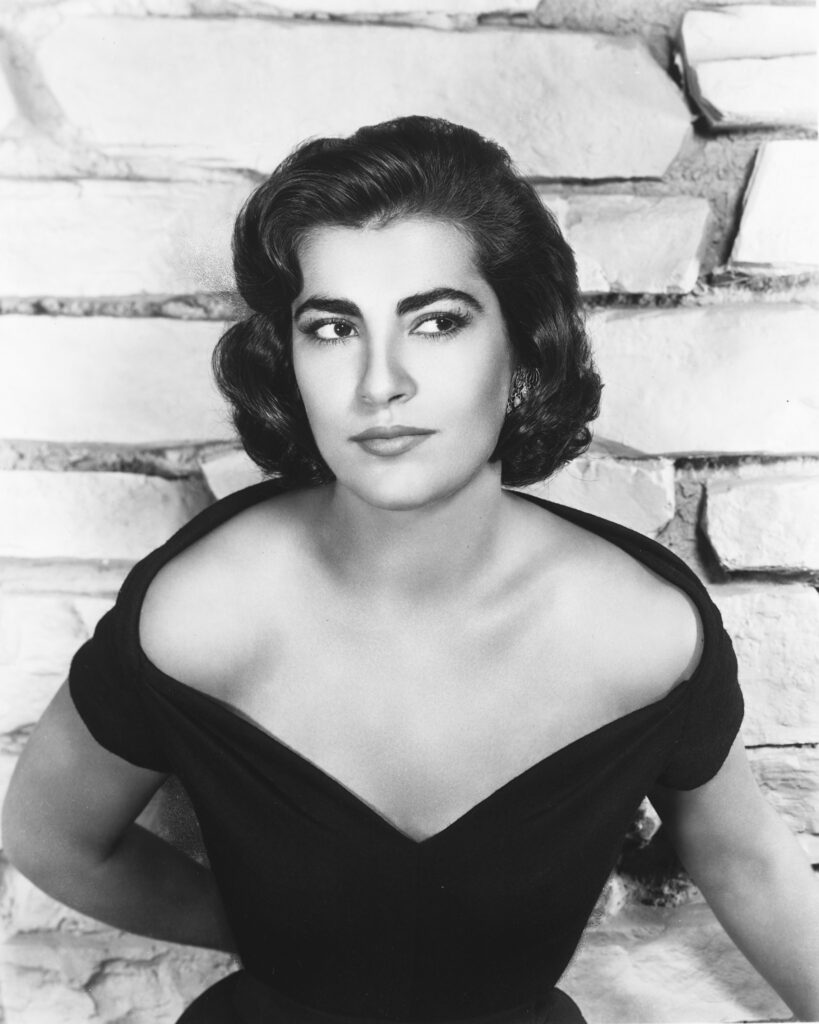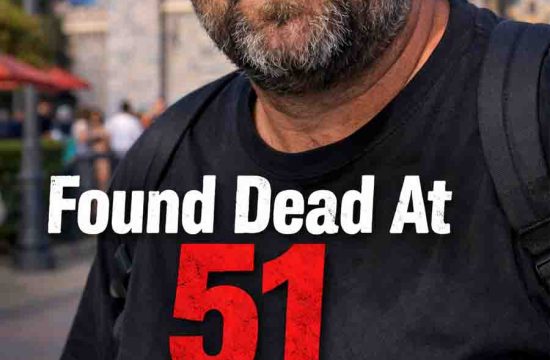Irene Papas, a Greek actress with riveting almond eyes who embodied roles of heroism and tragic dignity in films such as “Zorba the Greek” and “The Guns of Navarone,” and gained critical acclaim in classic Greek dramas including “Electra” and “Antigone,” has died. She was 93.

The death was announced Sept. 14 in a statement by Greece’s culture minister, Lina Mendoni, who called Ms. Papas “majestic, stately, dynamic … an international star who radiated Greekness.” The statement did not say when or where she died. No cause was given. Ms. Papas had symptoms of Alzheimer’s disease for nearly five years, according to Greek media.
Ms. Papas (sometimes spelled Pappas) appeared in more than 70 films and stage productions in Italy, France and the United States over a five-decade career. She was hailed by admirers as an ambassador of Greek culture and universal values for her powerful renderings of ancient plays.
She also was part of a generation of Greek artists and intellectuals forced into self-exile during the country’s military junta rule from 1967 to 1974. She lived in hotels in Rome and other cities, joining other Greek stars such as “Zorba” composer Mikis Theodorakis to denounce the regime in Athens.
In 1969’s “Z,” an Oscar-winning film by Greek-born director Costa-Gavras, Ms. Papas played the widow of a Greek politician slain by right-wing authorities. The film was based on the 1963 assassination of a left-leaning Greek parliament member Grigoris Lambrakis.
The movie seems to end in triumph with the killers exposed and the government doomed to collapse. But when Ms. Papas’s character received the news, she only stares out to sea in suffering and despair, knowing no real victory was achieved.
In her career, too, she often cast herself as an outsider and pragmatist. She spoke of being worn down by the competition for parts and being repeatedly cast in roles that tried to exploit her expressive eyes and strong-jawed visage some reviewers likened to ancient Greek ideals of beauty.
She was outspoken in public about subjects such as politics and art but acknowledged that she often meekly obeyed her directors on the set or stage.
“Sometimes I think I should simply stop acting,” she told film critic Roger Ebert in 1969. “A person should change professions every so often. I keep repeating my same skills in film after film. My mind is so deep in laughter and tears.”
Ms. Papas appeared in several Greek films beginning in the late 1940s. A trip to the United States in 1954 brought her to the attention of director Elia Kazan, whose latest film, “On the Waterfront,” starred Marlon Brando. (Ms. Papas later said she and Brando shared a decades-long love affair.)
Ms. Papas landed a seven-year contract with MGM. It only led to a single film, “Tribute to a Bad Man” (1956), a Western starring James Cagney. Ms. Papas’s breakthrough in Hollywood came with “The Guns of Navarone” (1961), in which she plays a hardened Greek partisan who joins a mission to destroy a powerful Nazi fortress on a Greek island.
In one memorable scene, the men on the mission (played by stars including Anthony Quinn, Gregory Peck and David Niven) hesitate to kill a woman discovered to be a turncoat. Ms. Papas’s character pulls the trigger, showing she is as tough as the men and burnishing the image of Greek village women as unflinching and capable of taking charge.
Another side of village life for women was portrayed in “Zorba the Greek” (1964) by Greek Cypriot filmmaker Michael Cacoyannis, whom Ms. Papas described as her favorite artistic collaborator. Ms. Papas played a role in sharp contrast to Quinn’s devil-may-care Zorba: a widow who is killed by villagers in Crete as revenge for the apparent suicide of a young man who loved her. The proud woman was suddenly transformed into someone hunted and trapped by her own neighbors.
Some of Ms. Papas’s most celebrated work, however, was in film adaptations of ancient Greek dramas, including George Tzavellas’s “Antigone” (1961) and twice working with Cacoyannis on “Electra” (1962) and playing Helen in “The Trojan Women” in 1971 with co-stars Katharine Hepburn and Vanessa Redgrave.
“Her dark, ageless, almost masculine beauty gives real dimension to the role of the woman who was once the most beautiful in the world,” wrote critic Vincent Canby about Ms. Papas in a New York Times review of “The Trojan Women.”
In 1977’s “Iphigenia,” director Cacoyannis placed Ms. Papas in front of replicas of ancient Hellenic sculptures of women that resembled her profile.
Ms. Papas said she tried to look at ancient Greek dramas through a modern lens, such as “Antigone,” Sophocles’s tragic tale of a woman who struggles against the king to allow her brother an honorable burial.
“So the heroine is someone that represents an idea and it’s like in modern times a revolutionist,” she said in 1968, “a partisan, someone that goes against a thing that is fascistic, tyrannic and all of that.”
Ms. Papas was born Eirini Lelekou on Sept. 3, 1929, in Chiliomodi, Greece, a village near Corinth, where her mother was a schoolteacher and her father taught classical drama.
The family moved to Athens when she was young, enrolling her in the Royal School of Dramatic Art — managing to keep her studies going during the years of Nazi occupation in the Greek capital during World War II. Soon after she graduated in 1948, Ms. Papas began to work in Greek films and stage productions.
Over the decades, her film roles included work with Kirk Douglas in the mafia story “The Brotherhood” in 1968; opposite Richard Burton as Catherine of Aragon in “Anne of the Thousand Days” (1969); and again with Quinn in “The Lion of the Desert” (1980), set during Italy’s colonial wars in Libya in the 1920s and ’30s. Ms. Papas also worked on many films in Italian.
In 2001 she appeared as the mother of a betrayed son in “Captain Corelli’s Mandolin” alongside Nicolas Cage and Penélope Cruz. Her final screen role was in Manoel de Oliveira’s “A Talking Picture” in 2003, playing a pampered actress on a sea voyage with co-stars Catherine Deneuve and John Malkovich.
“This great tragedienne,” de Oliveira called Ms. Papas. “She is the image of Greece of all time … the mother of Western civilization.”
Ms. Papas appeared on the New York stage in roles that included “Iphigenia in Aulis” in 1968 and “Medea” in 1973. She also found inspiration in singing, ranging from an album of songs by Theodorakis released by RCA in 1969 to background chants in 1972 for the Greek rock group Aphrodite’s Child.
She married twice: to actor Alkis Papas from 1947 to 1951 and briefly, in 1957, to producer José Kohn. The Greek Culture Ministry statement said she had no immediate survivors.
In 2004 after Brando’s death, Ms. Papas called him “the great passion of my life” despite keeping the affair mostly out of the public eye for decades. Her awards included Golden Lion at the 2009 Venice Biennale for lifetime achievement.
She was once asked about the difference of acting in classical dramas for film and stage. She replied that actors need a louder voice onstage, but “you always use the same soul.”











